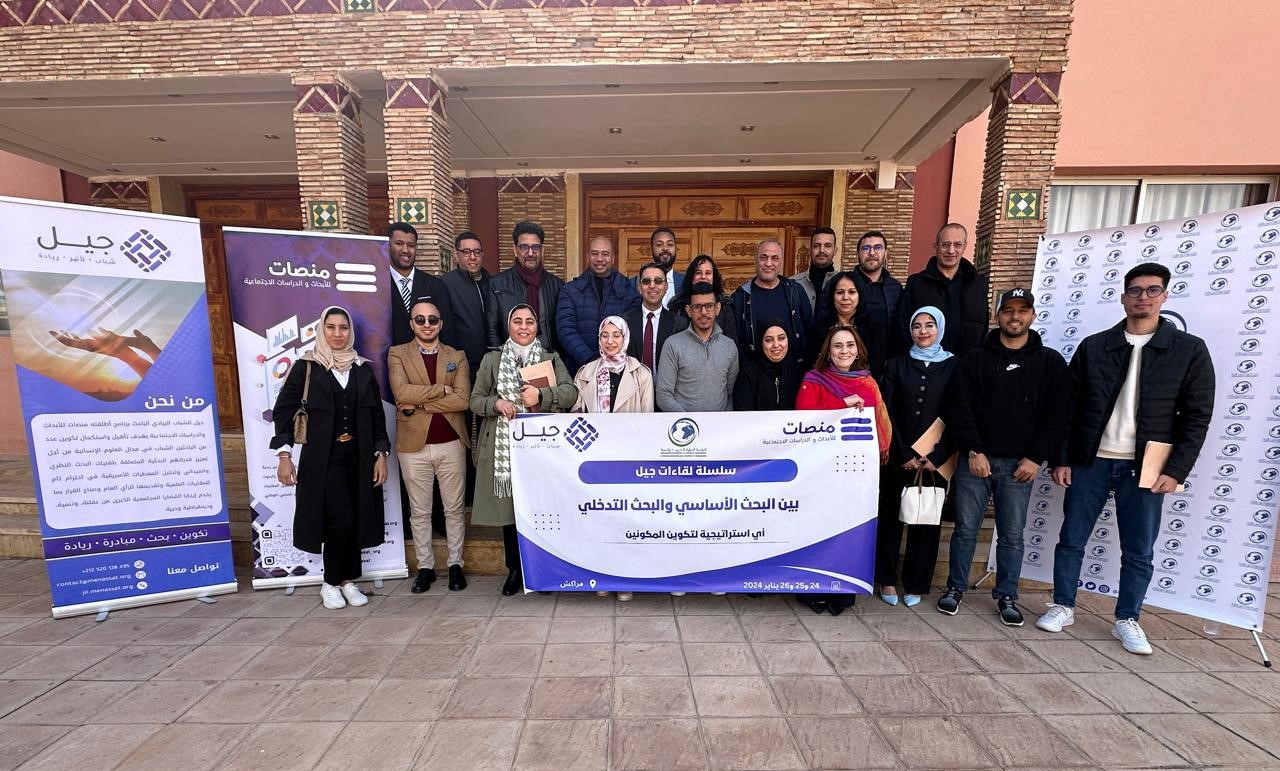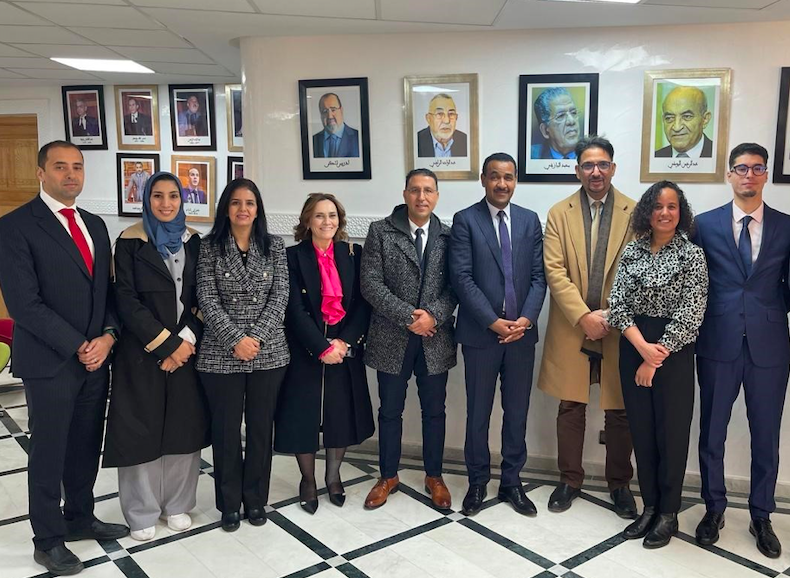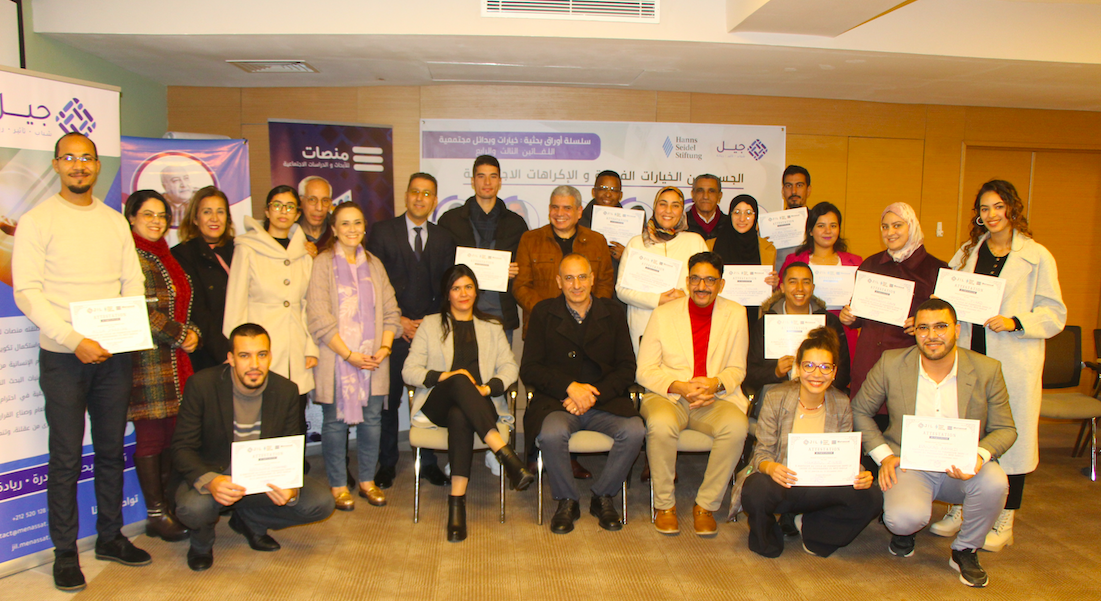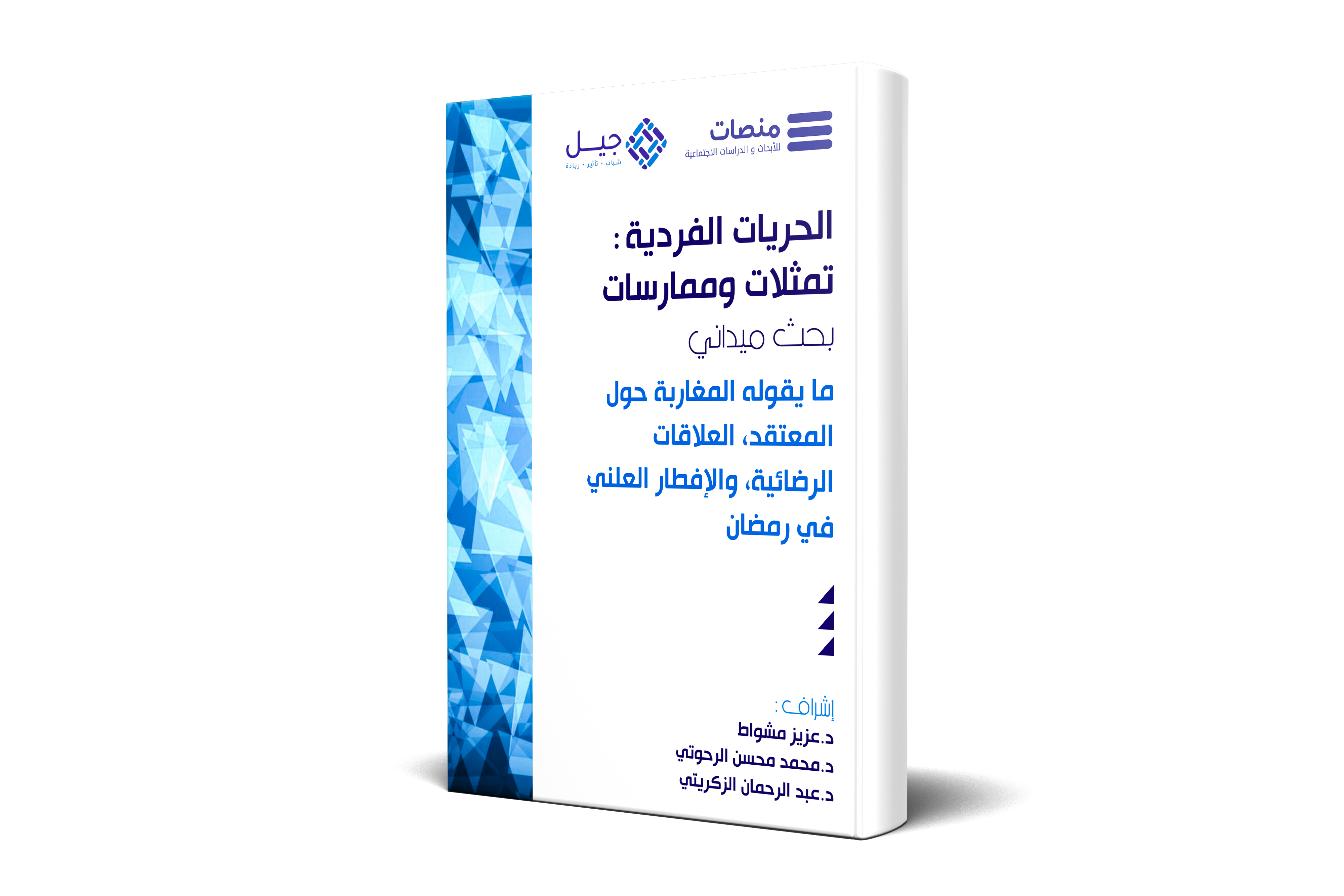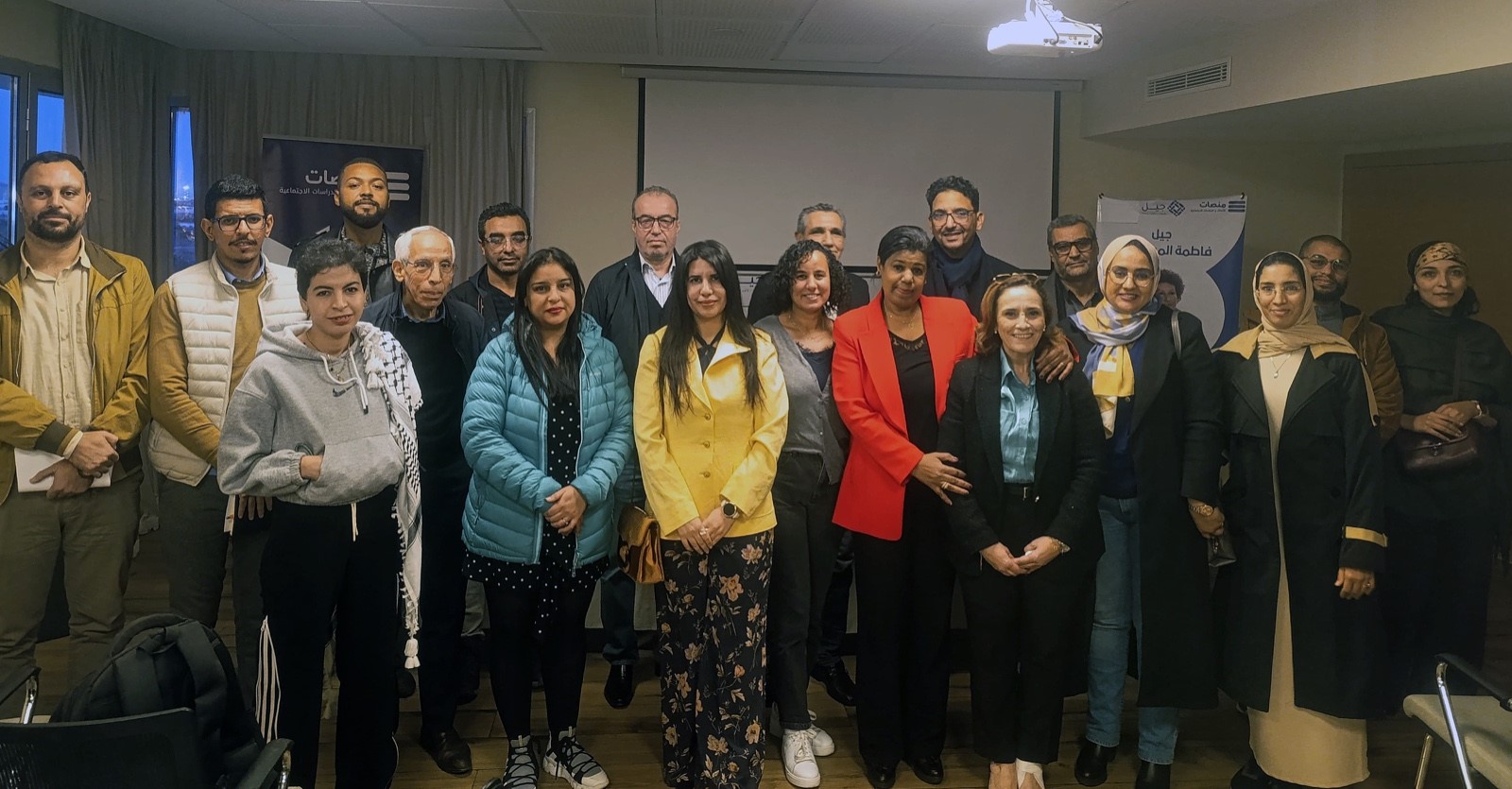
As part of the outputs of the JIL Fatima Mernissi program, Menassat organized the first JIL Forum on Saturday, December 14, 2024, at the Novotel Mohammedia. The event featured a policy paper discussion on "The Legal Guardianship Rights of Women over Children: The Need for Equitable Guardianship Between Fathers and Mothers." The paper was presented by JIL laureate Latifa Gonbark and was attended by Mrs. Fouzia El Harchaoui, a member of the executive board of the Party of Progress and Socialism (PPS), lawyer and activist Mrs. Yasmine Zaki, and Mr. El Hassan El Idrissi, President of the Moroccan Organization for Human Rights. The discussion was moderated by journalist Fatima Yassine, with the participation of various figures from social, civil society, and media spheres.
Latifa Gonbark: A Daily Struggle Against Legal Injustice
In her policy paper, Latifa Gonbark highlighted the injustices women face regarding child guardianship, which is legally assigned to fathers, both during marriage and after divorce.
The paper presented real-life cases of women suffering due to legal provisions that leave them at the mercy of the father, even when he is physically or morally absent from their children’s lives. This situation reinforces gender inequality in guardianship, despite women playing an essential and direct role in Morocco’s evolving social dynamics. The discussion raised critical questions about existing laws that constrain women’s rights and freedoms.
Gonbark called for a comprehensive review of the legal articles governing guardianship, particularly Articles 236 and 238 of the Family Code, to ensure equitable legal guardianship between both parents. She also recommended granting mothers the right to make fundamental decisions—such as transferring their children to a different school—without requiring the father’s consent in cases of divorce. Additionally, the policy paper emphasized the need for family councils as a mediating institution to resolve parental disputes while safeguarding the best interests of the child.
El Hassan El Idrissi: "Guardianship is Legal, Not Legitimate"
Mr. El Hassan El Idrissi, President of the Moroccan Organization for Human Rights, stressed the importance of adopting a cautious approach when addressing legal and legislative issues, emphasizing that laws cannot be separated from the social contexts in which they operate.
El Idrissi noted that while the Family Code represents a hard-won national consensus, it remains ambiguous in its conceptual framework and judicial application, necessitating urgent revision.
He pointed out that legal guardianship presents contradictions within the Moudawana (Family Code), which was designed to ensure justice for women. While its preamble upholds equality and the protection of women’s rights, articles such as 236, 237, and 238 clearly discriminate against them in matters of child guardianship.
El Idrissi further suggested reconsidering the terminology of "legitimate guardianship," which is socially associated with religion, in favor of "legal guardianship," which aligns with civil law. He argued that restricting this right to men undermines the principle of equality enshrined in the Family Code.
Additionally, he stressed that reforming the Family Code requires a comprehensive approach that extends beyond technical legal aspects to incorporate a deep analysis of Morocco’s evolving social and cultural landscape. According to El Idrissi, such a reform would not only achieve justice for women but also strengthen family stability and establish the principle of shared parental responsibility in child custody.
Yasmine Zaki: The Legal Biases of the Family Code
Lawyer and activist Yasmine Zaki highlighted the paradoxes within the Family Code, arguing that its provisions rely on religious discourse and jurisprudential terminology rather than a purely legal framework.
She pointed out that Article 400 refers to jurisprudence, giving the code a traditional character that contradicts Morocco’s commitments to international conventions, particularly those emphasizing the "best interests of the child."
Zaki also noted that the Family Code’s inconsistencies become even more apparent when translated from French to Arabic, as legal concepts lose their precise meanings, making the text less aligned with the principles of justice and equality.
She called for revising the legal texts to reflect justice and equality, emphasizing that the current guardianship laws reinforce a traditional vision of women’s roles within the family and society. Zaki advocated for a legal approach centered on children’s best interests, granting mothers equal decision-making rights alongside fathers in matters affecting their children’s lives.
Fouzia El Harchaoui: Ensuring Legal Equality in Court Proceedings is a Priority Reform
Mrs. Fouzia El Harchaoui underscored the fundamental challenges obstructing the implementation of the Family Code, particularly the legal discrimination between men and women regarding child guardianship.
El Harchaoui highlighted that Article 231 of the Family Code assigns primary responsibility to the husband, effectively sidelining the wife. This contradicts Article 4, which stipulates that responsibility should be equally shared between both spouses. This legal inconsistency places women in difficult situations, often forcing them into complex and exhausting legal battles to obtain basic rights, such as transferring their children to a different school or obtaining official documents.
She emphasized that this legal framework exacerbates women’s suffering, particularly those who have sole custody and bear full financial and emotional responsibility for their children, while still being required to seek approval from an absent or negligent father. According to El Harchaoui, such legal constraints hinder Morocco’s social development and fail to keep pace with the country’s deep social transformations.
She called for urgent legal reforms to eliminate the gender-based exclusions from guardianship rights, ensuring full legal equality. Furthermore, she advocated for addressing the legal gaps in the implementation of the Family Code and adopting a comprehensive reform vision that strengthens women’s rights and ensures justice within the family.
JIL Forum and the Broader Context
This forum was part of the JIL Fatema Mernissi program, which has supported a dozen laureates in this edition. The program has produced several policy papers, drawing from the national quantitative research study "Women, Public Space, and Individual Freedoms," for which Menassat will soon release the final report.
These policy papers explore various themes related to Morocco’s evolving social landscape and the legal debates surrounding laws that often lag behind the principles of human rights, individual freedoms, and gender equality. The discussions at the JIL Forum underscored how these legal constraints continue to hinder Morocco’s broader development efforts.

